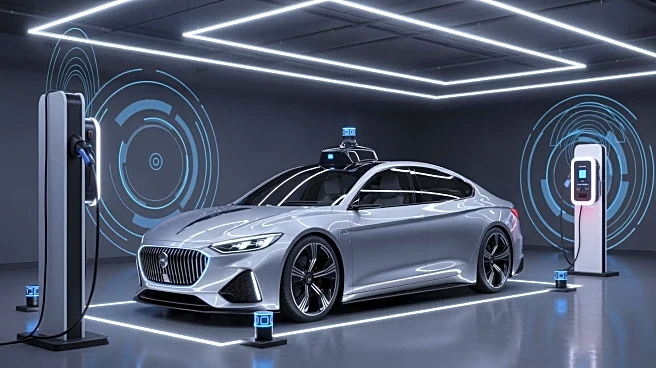What's Happening?
DoorDash, along with ride-hailing companies Uber and Lyft, has announced significant investment plans in self-driving technology. During a recent earnings call, DoorDash CEO Tony Xu emphasized the necessity
of substantial upfront investments to advance autonomous delivery systems. This announcement coincided with a historic 17% drop in DoorDash's stock, the largest one-day decline in its history, following the disclosure of its spending plan. DoorDash plans to allocate several hundred million dollars more than previously anticipated towards initiatives like its autonomous delivery technology, including the Dot robot, which is designed to navigate bike lanes and sidewalks for deliveries. Similarly, Uber and Lyft are also focusing on expanding their self-driving operations, with Lyft planning to build a depot in Nashville for its autonomous vehicles, and Uber aiming to increase the availability of driverless cars despite current financial losses.
Why It's Important?
The commitment to self-driving technology by major companies like DoorDash, Uber, and Lyft signifies a pivotal shift in the transportation and delivery sectors. These investments could lead to significant advancements in autonomous vehicle technology, potentially transforming how goods and people are transported. For DoorDash, the focus on autonomous delivery could enhance efficiency and reduce long-term operational costs, although it requires substantial initial investment. For Uber and Lyft, expanding self-driving operations could eventually lead to reduced reliance on human drivers, altering the employment landscape in the ride-hailing industry. The broader implications include potential regulatory challenges, changes in urban infrastructure to accommodate autonomous vehicles, and shifts in consumer behavior as these technologies become more prevalent.
What's Next?
As these companies proceed with their investment plans, they will likely face scrutiny from investors and regulators. The success of these initiatives will depend on technological advancements, regulatory approvals, and consumer acceptance of autonomous vehicles. DoorDash, Uber, and Lyft will need to demonstrate the viability and safety of their self-driving technologies to gain public trust and regulatory support. Additionally, the companies may explore partnerships with technology firms to enhance their autonomous capabilities. The development of supportive infrastructure, such as charging and maintenance facilities, will also be crucial for the widespread adoption of self-driving vehicles.









